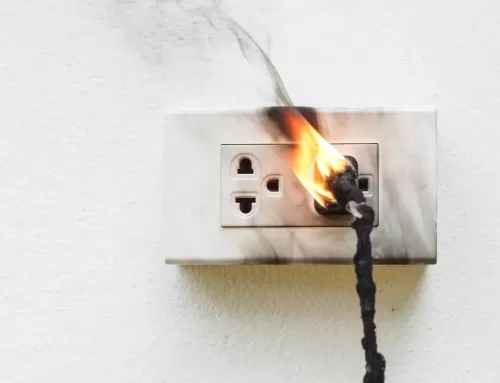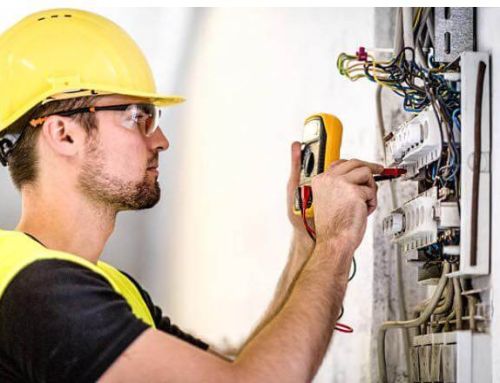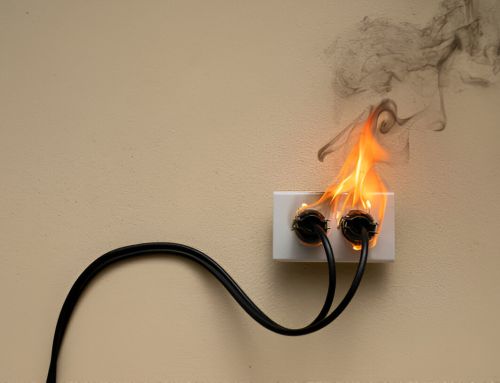
Having an unsatisfactory EICR can significantly impact the sale of your property; in fact, studies show that properties with electrical issues often struggle to attract buyers.

But fear not, there are ways to navigate this challenge effectively.
Let’s explore the implications of selling a property with an unsatisfactory EICR and uncover practical steps to address this issue and ensure a smoother selling process.
Definition of Electrical Certificates
When selling a property, understanding the definition and significance of electrical certificates is crucial to ensure compliance and safety standards are met. Electrical certificates, such as an Electrical Installation Certificate (EIC) for new installations or an Electrical Installation Condition Report (EICR) for existing installations, play a vital role in confirming that electrical work meets the necessary safety measures and regulatory requirements.
Ensuring compliance with these certificates involves thorough inspection details conducted by registered electricians. The certification process involves testing various aspects like Earth Fault Loop Impedance, Residual Current Devices (RCDs), and visual inspections to guarantee proper electrical current flow, insulation, and wiring connections. These certificates not only provide peace of mind to buyers but also demonstrate the commitment to maintaining property safety standards.
Role of Certificates in Property Sales

The inclusion of valid electrical certificates significantly influences property sales by assuring buyers of compliance and safety standards. When presented with up-to-date EICRs or EICs, buyers are reassured of the property’s adherence to legal safety requirements, which can positively impact negotiations. Having these certificates readily available enhances buyer reassurance, potentially leading to a quicker sale process and a boost in marketability.
From a legal perspective, ensuring the presence of these certificates falls under the seller’s responsibility, as they demonstrate transparency and a commitment to maintaining the property’s electrical safety standards. Failure to provide valid certificates can raise doubts about the property’s condition, potentially leading to legal implications and affecting the overall sale. Therefore, it’s crucial for sellers to prioritize obtaining and presenting these certificates to facilitate a smooth and legally compliant property transaction.
Locating Certified Electricians
To efficiently locate certified electricians for conducting EICR inspections, explore reputable schemes like NICEIC, NAPIT, or ELECSA for recommendations. These organizations ensure electrician qualifications, offering a pool of certified professionals with electrics expertise.
Finding reliable electricians through industry recommendations can provide assurance of quality and adherence to standards. When selecting an electrician for an EICR inspection, prioritize those affiliated with recognized schemes to guarantee competence and compliance. Certified professionals possess the necessary skills to assess electrical installations thoroughly, identifying potential hazards and ensuring safety.
Overview of EICR Inspections
Upon conducting an Electrical Installation Condition Report (EICR), a qualified electrician assesses the safety and compliance of existing electrical installations within a property. This inspection is crucial as it impacts both buyers and sellers. For buyers, the EICR provides assurance of the property’s electrical safety and compliance. Failure to meet these standards can lead to safety concerns and legal implications for both parties. Additionally, the EICR can influence the property valuation, as a satisfactory report may increase the value of the property, while an unsatisfactory report could potentially decrease it.
From a seller’s perspective, ensuring an up-to-date and satisfactory EICR isn’t only a legal responsibility but also a strategic move to attract buyers and expedite the selling process. Non-compliance with electrical safety standards can deter potential buyers and result in delays or even cancellations of transactions. Therefore, sellers must prioritize obtaining a satisfactory EICR to fulfill their responsibilities and facilitate a smooth property sale process.
Costs and Advantages of EICR

Costing between £100 to £300 for standard domestic properties, obtaining an Electrical Installation Condition Report (EICR) offers significant advantages for property sellers. Financial considerations are essential, as the cost of an EICR can vary based on the property’s size and complexity. However, the potential selling implications far outweigh the initial outlay.
From a buyer’s perspective, having a valid EICR can positively impact their perceptions of the property, assuring them of its safety and compliance with regulations. Moreover, meeting legal obligations by ensuring the electrical installations are in good condition can prevent delays or complications during the selling process.
Demonstrating a commitment to safety and maintenance can enhance the property’s market appeal, potentially leading to a faster sale. In conclusion, while there are costs involved, the benefits of obtaining an EICR extend beyond financial considerations and can have a significant impact on the property market dynamics.
Regulatory Bodies and Affiliations
One significant aspect to consider in the realm of electrical certifications is the involvement of regulatory bodies and affiliations. Regulatory requirements play a crucial role in ensuring that electrical inspections meet specified standards and compliance guidelines. Affiliated organizations such as NICEIC, NAPIT, and ELECSA provide frameworks for electricians to adhere to during inspections, enhancing the credibility and reliability of the certification process.
These organizations not only set inspection standards but also work towards maintaining consistency and quality across the industry. Compliance guidelines established by regulatory bodies help guarantee that properties meet safety requirements, minimizing risks and liabilities. Furthermore, affiliations with reputable organizations can have positive property implications by instilling confidence in buyers regarding the quality and safety of electrical installations.
Therefore, understanding the regulatory landscape and affiliations within the electrical certification sector is essential for ensuring thorough and compliant inspection processes with far-reaching benefits for property transactions.
Frequently Asked Questions
What Are the Potential Consequences of Selling a Property With an Unsatisfactory Eicr?
Selling a property with an unsatisfactory EICR can have severe safety implications, financial impact, and legal consequences. Full disclosure, repair costs, and a professional assessment are vital for buyer confidence and negotiation strategy.
How Can an Unsatisfactory EICR Affect the Negotiation Process With Potential Buyers?
An unsatisfactory EICR can complicate negotiations with buyers. Lower property value, safety concerns, and necessary upgrades can deter buyers, affecting market perception. Sellers must address issues promptly to meet buyer expectations, ensuring a smooth negotiation process.
Are There Any Specific Regulations or Laws That Address the Sale of Properties With Unsatisfactory Eicrs?
Legal implications on selling property with unsatisfactory EICR involve property condition and electrical safety. Inspection results impact buyer confidence and compliance. Disclosure requirements influence marketability and maintenance costs. Understanding these aspects is crucial for navigating property sales regulations.
Can Buyers Request a Re-Inspection or Additional Testing if They Have Concerns About the Property’s Electrical Safety?
Buyers may request a re-inspection or additional testing if they have concerns about electrical safety in a property sale. This can address any doubts, ensuring transparency and peace of mind for all parties involved.
How Can Sellers Proactively Address and Rectify Issues Identified in an Unsatisfactory EICR to Facilitate the Sale of Their Property?
To address issues in an unsatisfactory EICR, I recommend seeking professional advice for repair options. Prioritize safety measures, disclose findings transparently, and consider selling strategies that showcase your commitment to rectifying electrical concerns promptly for a smoother property sale.
Conclusion
In conclusion, selling a property with an unsatisfactory EICR can pose significant challenges in the real estate market.
It’s essential to address any electrical issues promptly by locating certified electricians and conducting necessary inspections to ensure compliance and safety.
By taking proactive steps to rectify any issues, homeowners can streamline the selling process and provide potential buyers with peace of mind.



